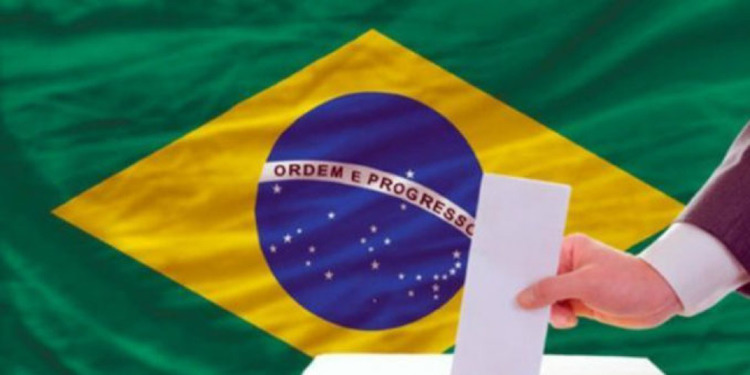Viewpoint by Jonathan Power*
LUND, Sweden (IDN-INPS) – From the time of its beginning as a nation state “Brazil has been a paradise for some, an endless hell for others, and for the rest, a kind of purgatory on earth.” So write two Brazilian historians, Lilla Schwarcz and Heloisa Starling, in their massive, newly published, volume on Brazil.
They continue: “Brazil’s development was born of ambivalence and contrast. On the one hand it is a country with a high degree of social inequality and low rates of literacy, whereas on the other its electoral system is one of the most sophisticated and reliable in the world. Brazil has the second number of Facebook users in the globe. At the same time vast geographical regions lie abandoned, particularly in the north, where the chief means of transport is by rudimentary sailboats.
“Brazil has an advanced constitution which forbids any kind of discrimination, yet, in reality, silent and perverse forms of prejudice are deeply ingrained and pervade everyday life. In Brazil the traditional and the cosmopolitan, the urban and the rural, the exotic and the civilized walk hand in hand. The archaic and the modern intermingle, the one questioning the other in a kind of ongoing interrogation.”
On Sunday (October 7), following a bitterly fought campaign, the Brazilians will go to the polls. What chance is there that they can help create a government that will improve on these dichotomies?
For starters: they can choose a president who can engineer their country’s rehabilitation from the degraded politics and economics of the last four years, and return it to the days of the presidency of Luiz Inácio “Lula” da Silva (2003 to 2011), when real progress was made, for the country as a whole and for the poor in particular.
Can it rid itself of the now life-threatening disease of corruption? The increasingly independent judiciary (a relatively new development in Brazil) has now slapped behind bars many leading politicians and top business executives, including Lula himself (although I have to say I agree with his predecessor, the admirable and respected Fernando Cardoso, who says he thinks the evidence in his case was thin).
The Supreme Court has started an investigation into eight ministers in the current government, as well as the presidents of both houses of Congress, 24 senators, 40 federal deputies and all the former presidents elected since 1988, apart from two. The current president, Michel Temer, has avoided arrest only because he has enough backers in Congress to protect him.
Can Brazil get hold of its horrific crime problem? The number of murders last year was nearly 64,000. Violence has been part of Brazil’s history since the earliest years of colonization, much of it rooted in the years of slavery. Today racism and inequality are rooted deep in the culture. Torture is still widely practiced by the police. The authorities have only had limited success in driving back the aggressive attacks on the indigenous populations and their land rights.
Millions of peasants farm a few hectares while some estate owners farm land the size of a city. In the cities unemployment and drug taking is so widespread that violence hangs in the air of every street. What chance is there that Brazil can once again begin to realize its massive economic potential?
Lula made a few mistakes, the most serious being the creation of large fiscal imbalances, but did an immense amount of good. However, his handpicked successor, the non-corrupt Dilma Rousseff, at the onset of her second term led the economy into a free-fall.
Brazil has long been the world’s seventh economic power, with a much higher national income per head than China, but it has the capacity to do so much better, as was showed at the time of the generals when annual growth topped 10% (but inflation was bad) and again under Lula topped 7% (and inflation was low). Under Rousseff it plunged to a minus growth rate.
As for the political parties, can they clean their stables? The Workers’ Party which was a major participant in the return to democracy is now tarnished by one corruption scandal after another, their leader behind bars an their presidential candidate, Fernando Haddad, a former successful mayor of Sao Paulo, not polling as well as necessary.
The other major parties are hardly clean either. This is why the apparently clean but ultra-rightist leader Jair Bolsonaro of the tiny Liberal party has taken the lead in the polls. He would push the country back in the direction of the military’s interests, letting them loose to bring law and order in the slums.
Brazil today is at another major turning point. An adman might write, “A wonderful future beckons”. It should but, alas, it probably won’t. The Brazilians like to say, “God is a Brazilian”. He is not.
Note: For 17 years Jonathan Power was a foreign affairs columnist and commentator for the International Herald Tribune – and a member of the Independent Commission on Disarmament, chaired by the prime minister of Sweden, Olof Palme. He forwarded this and his previous Viewpoints for publication in IDN-INPS Copyright: Jonathan Power. Website www.jonathanpowerjournalist.com. [IDN-InDepthNews – 02 October 2018]
Photo credit: akegroup.com
IDN is flagship agency of the International Press Syndicate.
facebook.com/IDN.GoingDeeper – twitter.com/InDepthNews
Tags: Opinion, Individual Journalists, Latin America & the Caribbean

